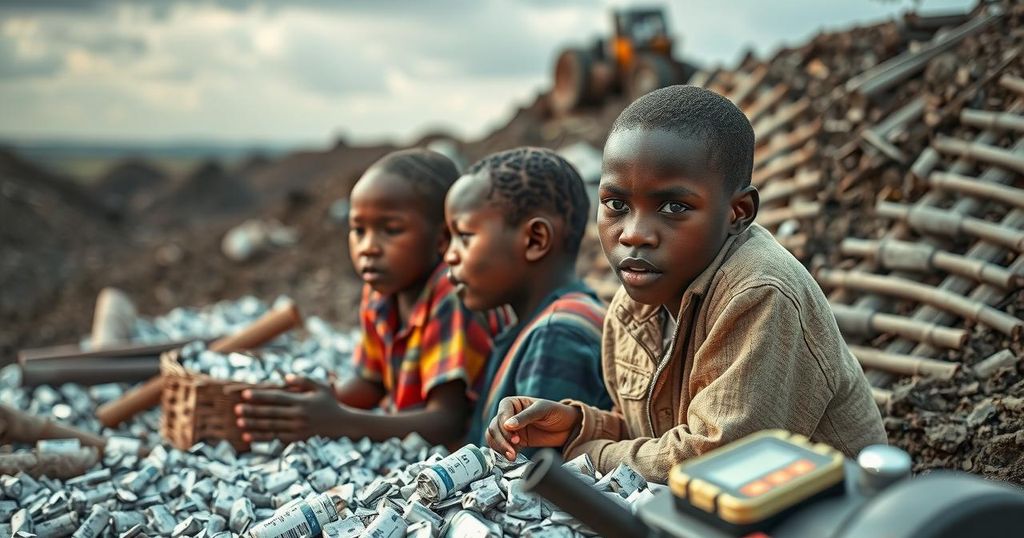Nigeria’s Illegal Lithium Mining: A Burgeoning Crisis of Child Labour

In Nigeria, illegal lithium mining is exploding due to rising global demand, leading to the exploitation of child labour. Children, often from impoverished backgrounds, work in unsafe conditions without schooling to support their families. Despite government claims of reforms, little is being done to curb this issue, raising ethical concerns about the sourcing of lithium.
Nigeria is facing a significant surge in illegal lithium mining, spurred by rising global demand for lithium in electric vehicle batteries. This boom has led to widespread child labour, with many children working under dangerous conditions in unlicensed mines. Hundreds of children toil in small-scale operations, often to support their impoverished families, while their safety and education are overlooked.
In Pasali, near Nigeria’s capital, the Associated Press documented miners, including minors, operating in perilous and unregulated conditions. Miners, often using basic tools, work in hazardous pits, risking injuries or worse. Little to no oversight exists; transactions for the lithium are routinely made without inquiries into the sourcing or working conditions.
A local miner shared his involvement since age 15, now operating his own site amidst a burgeoning illegal mining scene. Several children, some as young as five, were spotted working long hours for minimal pay, completely absent from education. Many children labour to ensure their families’ survival, perpetuating a cycle of poverty and exploitation.
Aliyu Ibrahim, a local lithium merchant, admitted he benefits from lax enforcement, pointing out that the children are often orphans or from poor families. He acknowledged their presence in these mines but suggested that their work is vital for their survival. The Associated Press found that sales agreements for lithium were made without due diligence regarding extraction conditions, raising serious ethical concerns.
The situation poses a dilemma for authorities. Nigerian Ministry officials asserted that reforms are in place to combat child labour and enhance education but the ongoing illegal mining activities continue to escalate. Activists argue that immediate action is necessary to ensure the rights and safety of children are prioritised over profit in the face of increasing lithium demand.
The growing demand for lithium, crucial for batteries used in electric vehicles and energy storage, has led to an increase in mining activities, particularly in Africa. In Nigeria, this has resulted in a significant rise in illegal mining operations, where inadequate regulation and pervasive poverty have allowed child labour to flourish. The International Labour Organization highlights that over a million children are engaged in mining globally, with Nigeria being a critical hotspot due to its weak enforcement of labour laws and safety measures.
The rise of illegal lithium mining in Nigeria has highlighted serious human rights and safety violations, especially regarding child labour. Despite claims of ongoing reforms and initiatives to protect children, the reality on the ground remains dire, with many young individuals forced to work under hazardous conditions without access to education. The ethical implications of sourcing minerals without regard for worker safety are increasingly concerning as global demand for lithium continues to grow.
Original Source: macaudailytimes.com.mo




